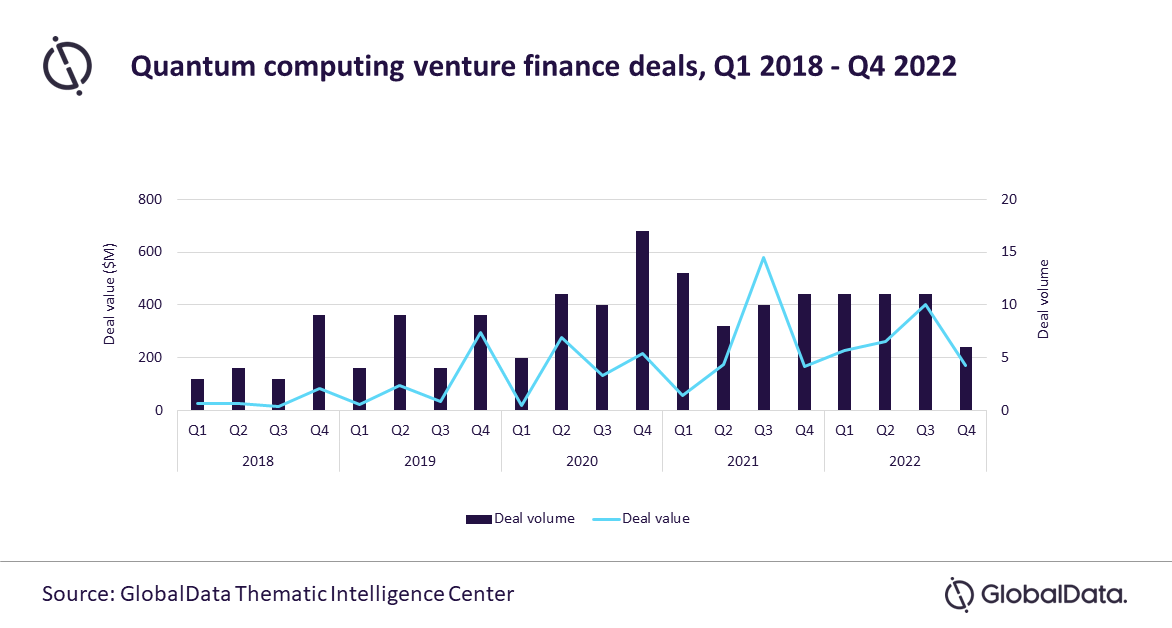The oil and gas industry has relied on traditional computers to tackle their mathematical challenges for decades. Despite the significant improvements in the speed and precision of classical supercomputers, they can sometimes fall short when calculations involve multiple variables. This limitation could be overcome with quantum computers, which, in theory, can perform some of the most complex computations, says GlobalData, a leading data and analytics company.

Image Credit: GlobalData
GlobalData’s thematic report, “Quantum Computing in Oil and Gas,” provides an overview of the quantum computing technology and its potential implications in oil and gas operations. It also highlights the role of major oil and gas companies, such as BP, ExxonMobil, Equinor, Shell, and TotalEnergies in the development of quantum computing to address complex business problems.
Ravindra Puranik, Oil and Gas Analyst at GlobalData, comments: “Although the technology is still in the research and development stage, its potential use cases in the oil and gas industry are numerous and are likely to expand. Several promising areas of application have been identified, and companies are collaborating with technology players to advance their research. Oil majors, such as BP and ExxonMobil have joined IBM’s Q Network to develop quantum computers that will increase the understanding of subsurface geology.”
Quantum computers use the properties of quantum physics to store data and perform computations. There are many technologies with the potential to build their foundational quantum bits (qubits). However, it may be over a decade before quantum computing enters the commercial mainstream.
Puranik continues: “Nevertheless, companies are looking at these computers to study aspects, such as molecular modeling and emission mitigation. Besides, the longstanding problems of matching demand with production and optimizing supply chains could be solved using quantum computing. As the technology is still at an early stage, companies have refrained from making any major acquisitions. However, venture financing deals have shown promise, with the total deals value staying above $150 million after reaching a peak in Q3 2021. In January 2023, French firm Pasqal raised around $108 million in Series B funding from multiple investors, including Saudi Aramco.”
Quantum computing has the potential to solve complex mathematical problems faster and more accurately than traditional computers. Such information could assist companies in faster decision-making to minimize risks and optimize operational costs.
Puranik concludes: “Oil and gas industry leaders are experimenting with the quantum computing devices that are available today. This would help them build an understanding of this technology. It would also give them a first mover advantage when such computers actually become available.
“Upstream use cases continue to be the focus area of most companies. In this regard, Baker Hughes has filed several patents on the application of quantum computing in the drilling of oil wells. Besides, companies such as TotalEnergies, ExxonMobil, and Shell are leveraging quantum simulations to identify suitable materials for carbon capture technologies, which are key to the energy sector to achieve carbon neutrality and mitigate climate change.”